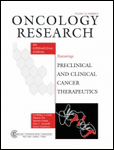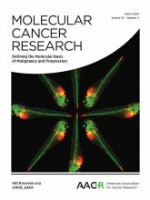
JOURNAL OF EXPERIMENTAL & CLINICAL CANCER RESEARCH
Scope & Guideline
Unlocking the secrets of cancer biology and therapy.
Introduction
Aims and Scopes
- Cancer Biology and Mechanisms:
Research exploring the molecular and cellular mechanisms underlying cancer development, progression, and metastasis, including studies on gene expression, epigenetic modifications, and tumor microenvironment interactions. - Therapeutic Strategies and Drug Development:
Investigations into novel therapeutic agents, including small molecules, biologics, and combination therapies, aimed at enhancing the efficacy of existing treatments and overcoming drug resistance. - Clinical Trials and Patient-Derived Models:
Studies involving clinical trials for new cancer therapies, as well as the development and use of patient-derived tumor models (such as organoids) to personalize treatment strategies. - Immunotherapy and Immune Microenvironment:
Research focused on the role of the immune system in cancer, including the development of immunotherapeutic approaches, immune checkpoint inhibitors, and the characterization of tumor-infiltrating lymphocytes. - Biomarkers and Liquid Biopsy:
Exploration of novel biomarkers for early cancer detection, monitoring treatment response, and predicting clinical outcomes, including the use of liquid biopsy techniques to analyze circulating tumor DNA. - Metabolism and Cancer:
Studies examining the metabolic reprogramming of cancer cells, including the impact of metabolic pathways on tumor growth, metastasis, and treatment resistance. - Cancer Stem Cells and Tumor Heterogeneity:
Research on cancer stem cells, their role in tumor initiation and progression, and the heterogeneity of tumor cell populations that contribute to treatment challenges.
Trending and Emerging
- Targeted Therapies and Personalized Medicine:
A growing number of studies focus on targeted therapies that are tailored to individual patient profiles, driven by genetic, epigenetic, or molecular markers, signaling a shift towards precision oncology. - Immunotherapy Advances:
There is an increasing emphasis on immunotherapies, including checkpoint inhibitors and CAR T-cell therapies, highlighting the importance of harnessing the immune system to combat cancer. - Liquid Biopsy and Circulating Biomarkers:
Research into liquid biopsy techniques and circulating tumor DNA as non-invasive methods for early cancer detection, monitoring treatment response, and understanding tumor dynamics is gaining momentum. - Metabolic Reprogramming in Cancer:
Emerging evidence supports the significance of altered metabolic pathways in cancer cells, with studies exploring how these changes contribute to tumor growth and resistance to therapies. - Tumor Microenvironment Interactions:
An increased focus on the interactions between tumor cells and their microenvironment, including the role of stromal cells, immune cells, and extracellular matrix components in cancer progression and therapy response. - Nanotechnology in Cancer Therapy:
Innovative applications of nanotechnology for drug delivery systems, enhancing the precision and effectiveness of cancer therapies, are becoming a prominent area of research. - Role of Non-Coding RNAs:
Investigations into the functions of non-coding RNAs, including long non-coding RNAs and circular RNAs, in tumor biology and their potential as therapeutic targets or biomarkers are on the rise.
Declining or Waning
- Traditional Chemotherapy Approaches:
There has been a noticeable decline in studies solely focused on traditional chemotherapy regimens without integration of novel agents or combinatorial approaches, as the field shifts towards more personalized and targeted therapies. - Single-Agent Studies:
Research focusing exclusively on single-agent therapies is waning, with a greater emphasis now on combination therapies that leverage synergistic effects to improve treatment outcomes. - Basic Cancer Biology without Translational Focus:
Studies that explore basic cancer biology without a clear translational application or clinical relevance are less frequently published, as the journal increasingly prioritizes research that connects laboratory findings to clinical implications. - Exploratory Studies with Limited Clinical Relevance:
There is a decline in exploratory studies that do not provide direct insights or applications for clinical practice, as the journal emphasizes findings that can be directly translated into therapeutic strategies.
Similar Journals

ONCOLOGY RESEARCH
Elevating Knowledge in the Fight Against CancerONCOLOGY RESEARCH, published by TECH SCIENCE PRESS, is a vital academic journal dedicated to the rapidly evolving field of oncology. With its ISSN 0965-0407 and E-ISSN 1555-3906, the journal serves as a key resource for researchers, clinicians, and academicians committed to advancing cancer research and treatment strategies. Operating without an Open Access model, ONCOLOGY RESEARCH provides high-quality, peer-reviewed articles that cover diverse topics within cancer research, medicine, and oncology, with its 2023 Scopus ranking placing it in the Q3 quartile. The journal's commitment to facilitating rigorous scientific discourse is evident in its historical breadth, with a publishing history dating back to 1992. ONCOLOGY RESEARCH is not only significant for the academic community but also plays a critical role in fostering new insights and approaches in the fight against cancer, making it a must-read for those involved in this critical area of study.

CANCER GENE THERAPY
Driving Progress in Molecular Biology for Cancer SolutionsCancer Gene Therapy, published by SpringerNature, stands at the forefront of research in the fields of cancer research, molecular biology, and molecular medicine. With a robust impact factor reflecting its significant influence—ranking in the Q2 category for cancer research and Q1 for both molecular biology and molecular medicine—it serves as an essential resource for scholars and practitioners alike. Since its inception in 1994, the journal has dedicated itself to advancing the understanding and therapeutic application of genetic innovations in oncology. Notably, it holds distinguished Scopus ranks, placing it among the top tier journals in its categories, underscoring its importance to the scientific community. While open access options are not available, the compelling research published here offers invaluable insights into the latest advancements and strategies in cancer therapy. Engaging with *Cancer Gene Therapy* not only keeps professionals informed but also inspires future innovations in the quest for effective cancer treatments.

Cancer Cell International
Connecting Researchers to Combat CancerCancer Cell International, published by BMC, is a transformative open-access journal established in 2001, dedicated to advancing the field of oncology and cancer research. With its ISSN number not specified and an E-ISSN of 1475-2867, the journal proudly operates from the United Kingdom, located at CAMPUS, 4 Crinan St, London N1 9XW, England. Renowned for its rigorous peer-review process, Cancer Cell International has made significant strides, securing a Q2 ranking in Cancer Research and Q1 rankings in both Genetics and Oncology as of 2023. It ranks impressively in Scopus, featuring in the top quintile of Genetics (#37/347) and Oncology (#52/404), indicating its importance within the scientific community. The journal's broad scope caters to a diverse array of topics within cancer biology, making it an invaluable resource for researchers, professionals, and students seeking to stay at the forefront of cancer science. With a commitment to disseminating high-quality research, Cancer Cell International invites scholars to explore innovative findings and contribute to the collective effort of combating cancer.

INTERNATIONAL JOURNAL OF ONCOLOGY
Advancing cancer research for a healthier tomorrow.INTERNATIONAL JOURNAL OF ONCOLOGY is a leading academic publication dedicated to advancing the field of cancer research and treatment. Published by SPANDIDOS PUBL LTD in Greece, this journal, with ISSN 1019-6439 and E-ISSN 1791-2423, has established itself as a reputable source of peer-reviewed articles since its inception in 1993. With an impressive Q2 ranking in both Cancer Research and Oncology categories, as well as high Scopus ranks reflecting its significant contribution to the fields of Medicine and Biochemistry, the journal offers a platform for researchers, clinicians, and students alike to disseminate their findings and engage in dialogue surrounding innovative practices and breakthroughs. Although the journal follows a traditional subscription model, it continues to attract a diverse readership interested in the latest developments in oncological research, providing essential insights into cancer biology, therapeutics, and patient care. With a commitment to excellence, the INTERNATIONAL JOURNAL OF ONCOLOGY plays a vital role in shaping the future of oncology research and is a must-read for anyone passionate about advancing cancer treatment and prevention.

CANCER IMMUNOLOGY IMMUNOTHERAPY
Fostering Breakthroughs in Cancer Treatment StrategiesCancer Immunology Immunotherapy, published by Springer, stands as a premier journal in the fields of cancer research and immunology, holding a prestigious Q1 ranking across multiple categories, including Oncology and Medicine as of 2023. With an ISSN of 0340-7004 and an E-ISSN of 1432-0851, this journal has been a pivotal platform for groundbreaking research since its inception in 1976, continuing to provide insight into the complex interactions between the immune system and cancer. The journal's scope encompasses a wide array of topics, including novel therapeutic strategies, immunological mechanisms, and translational science aimed at advancing treatment outcomes for cancer patients. Renowned for its rigorous peer-review process and high impact factor, it attracts contributions from leading experts and researchers around the globe, positioning itself among the top-tier publications with Scopus rankings that reflect its vital role in advancing the field. Access options are generally subscription-based, ensuring a comprehensive resource for professionals and academics seeking to deepen their understanding and make meaningful contributions to cancer immunotherapy.

ONCOGENE
Transforming Cancer Research with Cutting-Edge StudiesONCOGENE is a premier peer-reviewed journal published by SpringerNature, serving as a crucial platform for innovative research within the fields of Cancer Research, Genetics, and Molecular Biology. With an impressive Impact Factor and a distinguished Q1 ranking across major categories, ONCOGENE publishes cutting-edge studies aimed at unraveling the complexities of cancer biology and genetic mechanisms. The journal has been a vital resource for the academic community since its inception in 1987, and it continues to foster rigorous scientific discussions and collaborations. Researchers, professionals, and students can access a wealth of critical insights and advances in cancer genomics and therapeutic approaches, cementing ONCOGENE’s role as a leading voice in the landscape of biomedical research. For comprehensive academic research, ONCOGENE remains an indispensable source of knowledge with contributions that significantly impact the evolution of cancer research and treatment strategies.

Advances in Cancer Biology-Metastasis
Innovating Insights into Cancer Metastasis.Advances in Cancer Biology-Metastasis is an emerging journal published by Elsevier, aimed at advancing our understanding of the complexities of cancer biology, with a specific focus on the mechanisms and pathways related to metastasis. With an E-ISSN of 2667-3940, this journal offers a platform for researchers, professionals, and students in the fields of Cancer Research and Cell Biology to disseminate innovative findings and discuss novel therapeutic approaches. Though currently classified in the Q4 quartile across both Cancer Research and Cell Biology categories, the journal aspires to enhance its impact through rigorous peer review and high-quality publication. Positioned to cover the years from 2021 to 2024, it seeks to bridge gaps in foundational knowledge and promote collaborative research efforts that could pivot the current understanding of cancer metastasis. Researchers are encouraged to take advantage of this platform to advocate for advancements in cancer biology, making significant contributions that can influence both academic and clinical practices.

GENE
Exploring the Depths of Genetic KnowledgeGENE, an esteemed journal published by Elsevier, serves as a vital resource for researchers and professionals in the fields of genetics and medicine. With an ISSN of 0378-1119 and an E-ISSN of 1879-0038, this scholarly journal has been at the forefront of genetic research since its inception in 1976 and is set to continue until 2025. Situated in the Netherlands, GENE is recognized for its significant contributions, reflected in its Q2 ranking in both Genetics and Miscellaneous Medicine categories for 2023. This positioning within the Scopus rankings demonstrates its impact and relevance in a competitive field, where it holds the rank of #129 out of 347 in Genetics, placing it within the 62nd percentile. Although it does not offer open access options, GENE provides invaluable insight into contemporary genetic research, thereby fostering academic discussions and advancements. Researchers, professionals, and students alike will find GENE an essential platform for disseminating knowledge and exploring innovative developments in genetics and associated sciences.

Molecular & Cellular Oncology
Exploring the cellular mechanisms of oncogenesis.Molecular & Cellular Oncology, published by Taylor & Francis Inc, is a vital academic journal dedicated to the exploration of cancer biology through the lens of molecular and cellular mechanisms. Since its inception in 2014, the journal has played a crucial role in disseminating innovative research findings that address the fundamental aspects of cancer research and molecular medicine. With its current ranking in Scopus placing it in the Q3 quartile for both Cancer Research and Molecular Medicine, the journal provides a platform for groundbreaking studies that push the boundaries of our understanding of oncogenesis and therapeutic interventions. Although the journal operates under a subscription model, its dedication to high-quality peer-reviewed research makes it an essential resource for researchers, professionals, and students aiming to contribute to or stay updated in the rapidly evolving field of oncology. As we approach the culmination of its converged years in 2024, Molecular & Cellular Oncology aims to continue fostering collaborations and insights that advance cancer research on a global scale.

MOLECULAR CANCER RESEARCH
Advancing the Frontiers of Cancer KnowledgeMOLECULAR CANCER RESEARCH, published by the American Association for Cancer Research, stands as a pivotal journal in the fields of cancer research, molecular biology, and oncology. With an impressive impact factor and recognized as a Q1 journal in its respective categories for 2023, it serves as an essential resource for researchers, professionals, and students aimed at advancing our understanding of cancer mechanisms and therapies. The journal, identified by the ISSN 1541-7786 and E-ISSN 1557-3125, provides a platform for cutting-edge research and clinical applications, emphasizing innovation and collaboration within the scientific community. With its focus on high-quality, peer-reviewed articles, MOLECULAR CANCER RESEARCH is vital for anyone looking to stay abreast of significant advancements in cancer biology and treatment strategies. For more details and to access the journal's content, please visit the publisher's link.